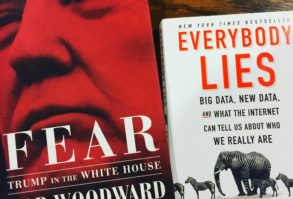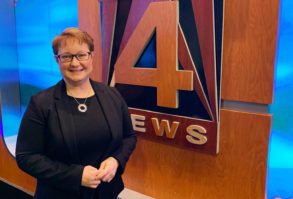I remember the days when presidential campaigns came and went. There were ads, debates, and regular campaign stops around the country, but then election day came, and it was an event—almost celebratory. A candidate conceded with grace and dignity, and we all accepted the candidate who did win as President—life went on as usual.
Now, with disinformation swirling around in the information silos, the 2024 Presidential early voting and upcoming election day are challenging our way to figure out what is fact and what is fiction.
Doubting election results are common each year. Each losing side questions the legitimacy of the election. In 2013, Fairleigh Dickinson University’s PublicMind Poll said 63% of registered voters in the U.S. buy into at least ONE conspiracy theory.
The poll showed that “the most popular of these conspiracy theories is the belief that President Obama is hiding important information about his background and early life…” It’s not just the 64% of Republicans believing Obama was not born in the U.S., but also 14% of Democrats do.
Fast forward to 2016, and Fairleigh Dickinson University’s PublicMind Poll shows that Trump supporters are MORE conspiracy-minded than other Republicans. In fact, in 2008, it was Trump who started the rumor ABOUT Obama’s birth certificate.
The Washington Post also reported that 37% of Democrats believed that President George W. Bush stole the election in 2004.
When did doubt and conspiracy theories start creeping into our political sphere—it’s always been there. Still, social media has created the spread of (dis)information such as “rigged” elections that are causing people to doubt our system more than ever in history.
Studies have shown that election fraud is very rare, if at all, nonexistent.
The more information we have access to, the more (dis)information we have access to. We had limited resources to spread information in the years 2000 and 2004. In 2008, Twitter and Facebook became popular for discussing our political opinions globally. Mis(dis)information could spread faster and cast a wider net to reach hundreds to thousands of people.
Anyone could post disinformation and plant the seeds of doubt. Casual political discussions didn’t happen over the water cooler any longer. The Internet, especially social media, keeps people confirming their beliefs and creates cognitive dissonance with information they disagree with. Instead of looking at information analytically and considering both sides, people stick to their own information silos that share their own ideological beliefs.
These seeds of doubt start to grow. Trump’s bombastic rhetoric meant to shock and awe has become a mantra for Trump Republicans, or what we now nickname the MAGA party.
When those seeds are planted and grow through the years, you end up with what happened today; ballot boxes in Washington state set on fire.
The fiery and hateful rhetoric coming from a recent MAGA rally also doesn’t help with tensions. Trump wants tensions high. He wants to see us divided even further than we are today. Trump is doubling down on his vile rhetoric to create a more unstable and emotionally charged election day. If he loses–he hopes voters will question why he did not win. He’s laid the groundwork for his conspiracy theory of voter fraud.
So why spread conspiracy theories?
- Conspiracy theories are meant for people who feel powerless or vulnerable. They are more likely to spread conspiracy theories.
- In uncertain times, it’s a coping mechanism.
- It’s easier to cope when you believe a conspiracy theory. “My candidate lost—it must be a rigged election.”
- Conspiracy theories are there to dispute mainstream politics—claiming they don’t show minority viewpoints.
Reducing the spread of conspiracy theories requires critical thinking skills, such as becoming analytical before sharing a post.
- Do I recognize the news organization that posted the story?
- Does the information seem believable?
- Is the post written in a style I expect from a professional and credible news organization?
- Is this post politically motivated?
- Is this post emotionally charged?
Ask yourself this: Were you worried about election fraud before Donald Trump became the Republican Presidential candidate in the 2016 campaign?



